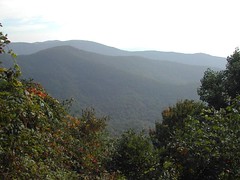Blaming the Internet:
The Chicago Tribune's fascinating investigation, using online databases, of CIA employees, is called Internet Blows CIA Cover. Whew! This will probably raise a ruckus. From researchers, so far, a comment from Gary Price on Resourceshelf; I'm sure there will be more.
First off, I do love the story. It is still amazing, despite recent privacy limitations, what you can find out about people using online compilations of public records. It takes imagination and ingenuity to figure out how to put together a project like this, too: you can't just punch 'CIA' into a database and get a magic list.
And, of course, it wasn't technically 'The Internet' they used. It was commercial databases that you have to be vetted to subscribe to. You have to be trained to use them. And you can't use them in ways that violate people's privacy. Trib senior correspondent and researcher Brenda J. Kilianski played it by the rules:
But, darn it, they didn't use 'the Internet'. They used private databases that you can access using the World Wide Web, but aren't available by a 'Google' search. This isn't something that any Web user can do. This is something only available to certain organizations in the public interest, and something that takes experienced knowledge of the databases to do.
But whatever, it's really cool what they came up with, like this:
The Chicago Tribune's fascinating investigation, using online databases, of CIA employees, is called Internet Blows CIA Cover. Whew! This will probably raise a ruckus. From researchers, so far, a comment from Gary Price on Resourceshelf; I'm sure there will be more.
First off, I do love the story. It is still amazing, despite recent privacy limitations, what you can find out about people using online compilations of public records. It takes imagination and ingenuity to figure out how to put together a project like this, too: you can't just punch 'CIA' into a database and get a magic list.
And, of course, it wasn't technically 'The Internet' they used. It was commercial databases that you have to be vetted to subscribe to. You have to be trained to use them. And you can't use them in ways that violate people's privacy. Trib senior correspondent and researcher Brenda J. Kilianski played it by the rules:
The Tribune is not disclosing the identities of any of the CIA employees uncovered in its database searches, the searching techniques used or other details that might put agency employees or operatives at risk.
But, darn it, they didn't use 'the Internet'. They used private databases that you can access using the World Wide Web, but aren't available by a 'Google' search. This isn't something that any Web user can do. This is something only available to certain organizations in the public interest, and something that takes experienced knowledge of the databases to do.
But whatever, it's really cool what they came up with, like this:
For decades the CIA's training facility at Camp Peary, Va., near historic Williamsburg, remained the deepest of secrets. Even after former CIA personnel confirmed its existence in the 1980s the agency never acknowledged the facility publicly, and CIA personnel persisted in referring to it in conversation only as "The Farm."
But an online search for the term "Camp Peary" produced the names and other details of 26 individuals who according to the data are employed there. Searching aviation databases for flights landing or taking off from Camp Peary's small airstrip revealed 17 aircraft whose ownership and flight histories could also be traced.





0 Comments:
Post a Comment
<< Home